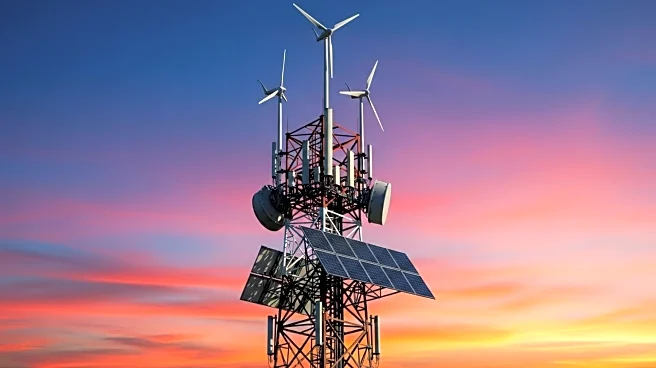What is the story about?
What's Happening?
Airtel Zambia and IHS Zambia are progressing on their plan to establish 152 new telecom towers across Zambia by November 2025. This initiative, in collaboration with Zambia's Ministry of Technology and Science and the Zambia Information and Communications Technology Authority (ZICTA), aims to enhance network reach and digital access. As of now, 40 towers are operational, with an additional 12 expected by the end of September. The project, costing approximately $14 million, includes 38 towers in Lusaka Province, benefiting over 11,000 students at the University of Lusaka. The towers feature a smart energy system utilizing batteries, generators, and solar power to ensure uninterrupted service.
Why It's Important?
The expansion of telecom infrastructure in Zambia is crucial for improving digital connectivity and access to information, particularly in remote areas. This project is part of a broader national initiative to enhance digital services through public-private partnerships. By improving network reliability and coverage, the initiative supports economic development and educational opportunities, especially for students and communities in underserved regions. The use of smart energy systems also highlights a commitment to sustainable and efficient energy use, which can serve as a model for similar projects in other developing regions.
What's Next?
The project is on track for completion by November 2025, with additional towers planned for construction in the fourth quarter. The continued collaboration between the government, ZICTA, Airtel, and IHS Zambia is expected to further accelerate the development of Zambia's digital economy. Stakeholders will likely monitor the project's impact on connectivity and service quality, potentially leading to further investments in digital infrastructure.
Beyond the Headlines
This initiative underscores the importance of strategic public-private partnerships in addressing infrastructure challenges in developing countries. The integration of smart energy solutions not only improves service reliability but also aligns with global sustainability goals. As digital access becomes increasingly vital for economic and social development, similar models could be adopted in other regions facing connectivity issues.

















